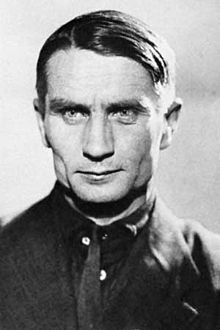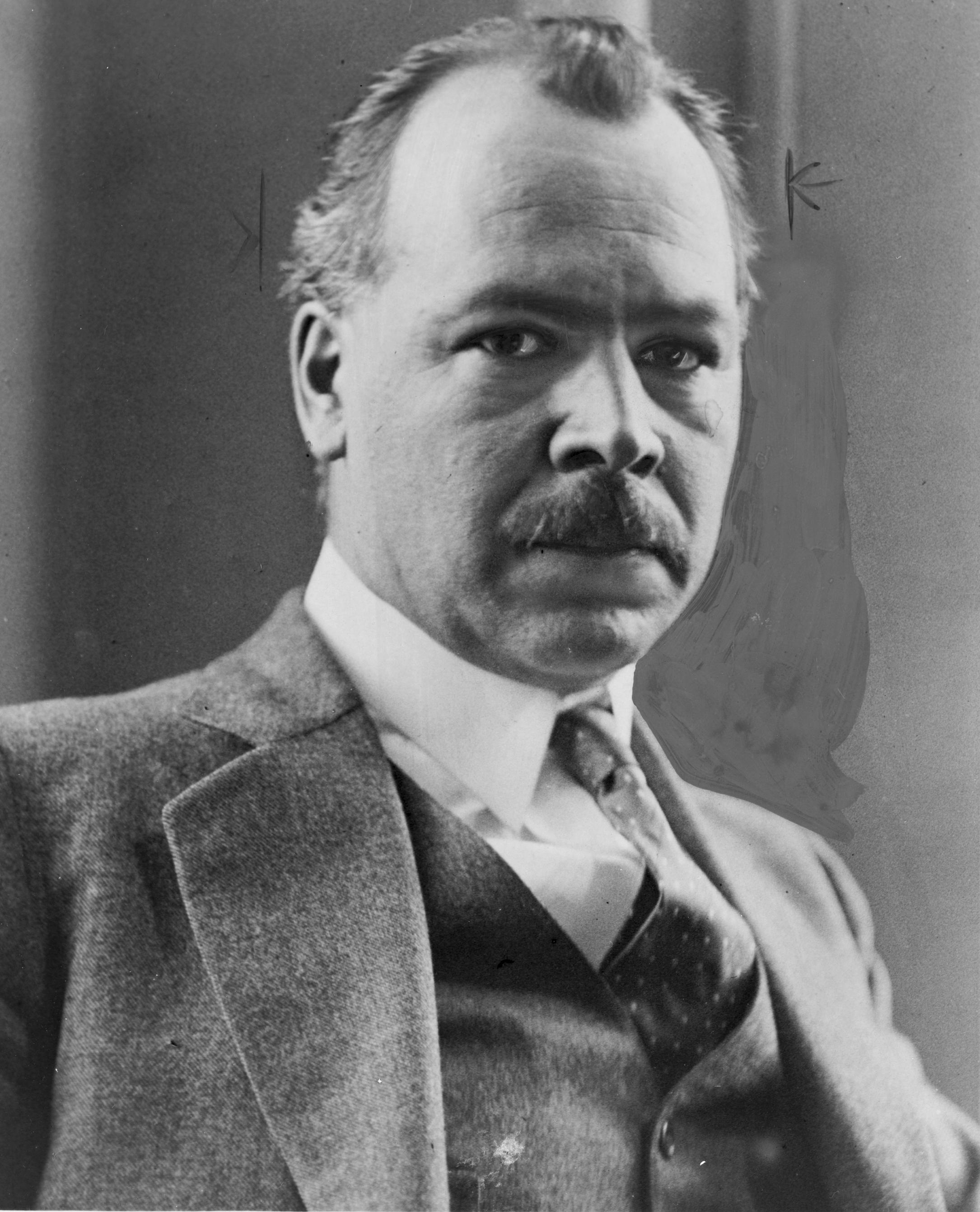

TD Lysenko (1898 - 1976)
NI Vavilov (1887 - 1943)
Science &
Politics in the Soviet Union: The Fate of Genetics, 1930 -
1964
Following the collapse of the Russian Empire
and the ensuing Civil War, agriculture in the Soviet Union of the
1920s remained in a state of massive crisis, during the forced
changeover from a small-farm, agrarian-based economy towards an
industrial economy based on collective farms. Whole-sale
elimination of the Kulak peasant class, and bureaucratic
mismanagement, led to widespread famines that provoked the Soviet
government to search for any possible solution to the critical
lack of food.
Trofim Denisovich Lysenko (1898 – 1976)
was a Russian peasant agriculturist, who achieved notoriety in the
late 1920s by his advocacy of vernalization. Seeds from
winter-adapted strains of wheat, when exposed to freezing
temperatures prior to planting, were able to germinate when
planted in the spring. The method was well-known, but scientific
data had shown that it produced only marginal increases in yield.
Lysenko, instead of performing controlled experiments, made
extravagant claims that vernalization increased wheat yields by as
much as 15%, and also that the modified growth was inherited
between generations. Soviet propaganda favored inspirational
stories of peasants who, through their native ability and
intelligence, came up with solutions to practical problems.
Lysenko was widely presented as such a genius, who had developed a
new, revolutionary technique. Lysenko also associated himself with the ideas of Michurin,
another peasant horticulturist. Michurin advocated Lamarckism,
and claimed to have effected permanent changes in plant species
through hybridization, grafting, and other non-genetic
techniques. [Michurin’s methods have parallels in the work of
the American plant breeder Luther Burbank]. The notion
that acquired characteristics could be transmitted to an
organism's descendants was seen as consistent with the social
theories of Marx and Engels, who argued that nature and human
society were infinitely plastic. Lysenko's methods were
also seen as a way to engage peasants directly in an "agricultural
revolution," instead of opposing government 'reforms'. He went on
to advocate other dubious methods, such as cluster-planting of
trees (Soviet seedlings would 'cooperate,' rather than 'compete'
in a capitalist manner), scattering seed on stubble fields, and
argued for the possibility of inter-species transformations (the
sort of things that might be expected with contaminated seed)
Soviet geneticists at the time were
well-established among the world leaders in the field. These
included Theodosius Dobzhansky (1900 - 1975), whose
"Genetics and the Origin of Species" was a seminal
contribution to the New Evolutionary Synthesis, and Sergei
Chetverikov (1880 - 1959) whose work on population
genetics anticipated Ronald Fisher and Sewall
Wright. In particular, Nikolai
Ivanovich Vavilov (1887 - 1943) amassed a huge seed bank
collection for breeding. He pioneered efforts to
develop new strains of crops that were specific for the
many growing regions in the USSR, by use of controlled
crosses and heritability studies.
Left-leaning Western geneticists including future Nobelist Herman
J Muller visited Vavilov to promote East-West cooperation.
However, Vavilov's methods require several generations to show
results, academic geneticists were constrained by their
actual data and could not hope to match Lysenko's extravagant
claims. They were also no match for Lysenko's political tactics,
which presented genetics as 'western bourgeois science'.
Support from Joseph Stalin (1879 -
1953) enhanced Lysenko’s status. In 1935, during the height of the
Yezhov
Terror, Lysenko gave an address to the Politburo in
which he accused Soviet geneticists who opposed his theories of
being "Mendelist - Morganists" who set themselves against
Marxist-Leninism. Stalin was in the audience, and called out "Bravo,
Comrade Lysenko, Bravo." Lysenko thereafter began an
campaign of extreme demagoguery to slander geneticists who still
spoke out against him, and to replace the staff of genetics
research units in Soviet laboratories with his own followers. Many
of Lysenko’s scientific opponents, including Vavilov, were
imprisoned and died in the Gulag after denunciation by
Lysenko. (At the time of his arrest, Vavilov had just been elected
President of the International Congress of Genetics, but was
refused permission to travel abroad. Vavilov died of starvation in
a Gulag prison
cell.).
Following World War II, Stalin instituted a new
"anti-Cosmopolitan" campaign intended to suppress any
influence from the West, which had been tolerated during the war.
In 1948, a carefully stage-managed scientific debate between the
two schools at the Lenin Academy of Agricultural Sciences was
terminated by Lysenko's preemptive announcement that the Central
Committee had
read his position paper, and "They approved it!": Lysenkoism would
henceforth be taught as "the only correct theory". In the
subsequent scramble for survival, Soviet geneticists and
biologists were forced to denounce each other and any work that
contradicted Lysenko's theories. The anti-Cosmopolitan campaign
extended to many spheres of Soviet science and culture. Notably,
the "anti-Formalist"
campaign in music targeted the most prominent Soviet composers
including Shostakovitch, Prokofiev, and Khachaturian.
Lysenko’s domination of Soviet agriculture was
essentially complete from 1948 – 1964. Following the death of
Stalin in 1953 and eventual consolidation of power under Nikita
Khrushchev in 1958, realistic assessment of serious
shortfalls in Soviet agriculture as compared with successes
achieved by genetic means in the West came to question, and
criticism of Lysenko was again permitted. Scathing reviews of
Lysenko's results and methods contributed to Khrushchev's fall in
1964, and he was removed from all positions of authority by 1966.
Soviet biology had lost an entire generation to the political
ambitions of an ignorant demagogue.
Lysenko died in isolation in
1976. His western obituary noted, “Even the fruit flies were
killed.”



